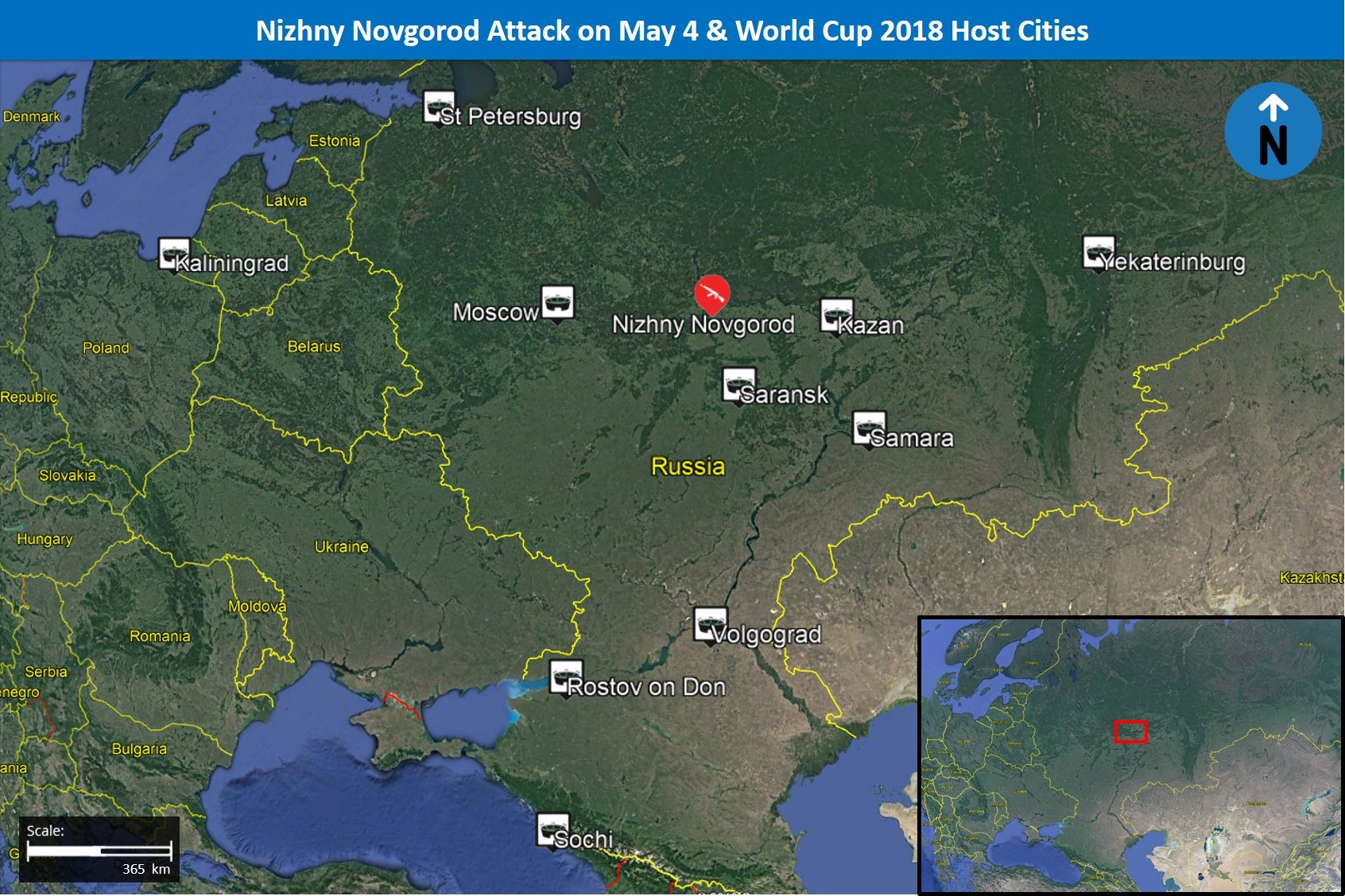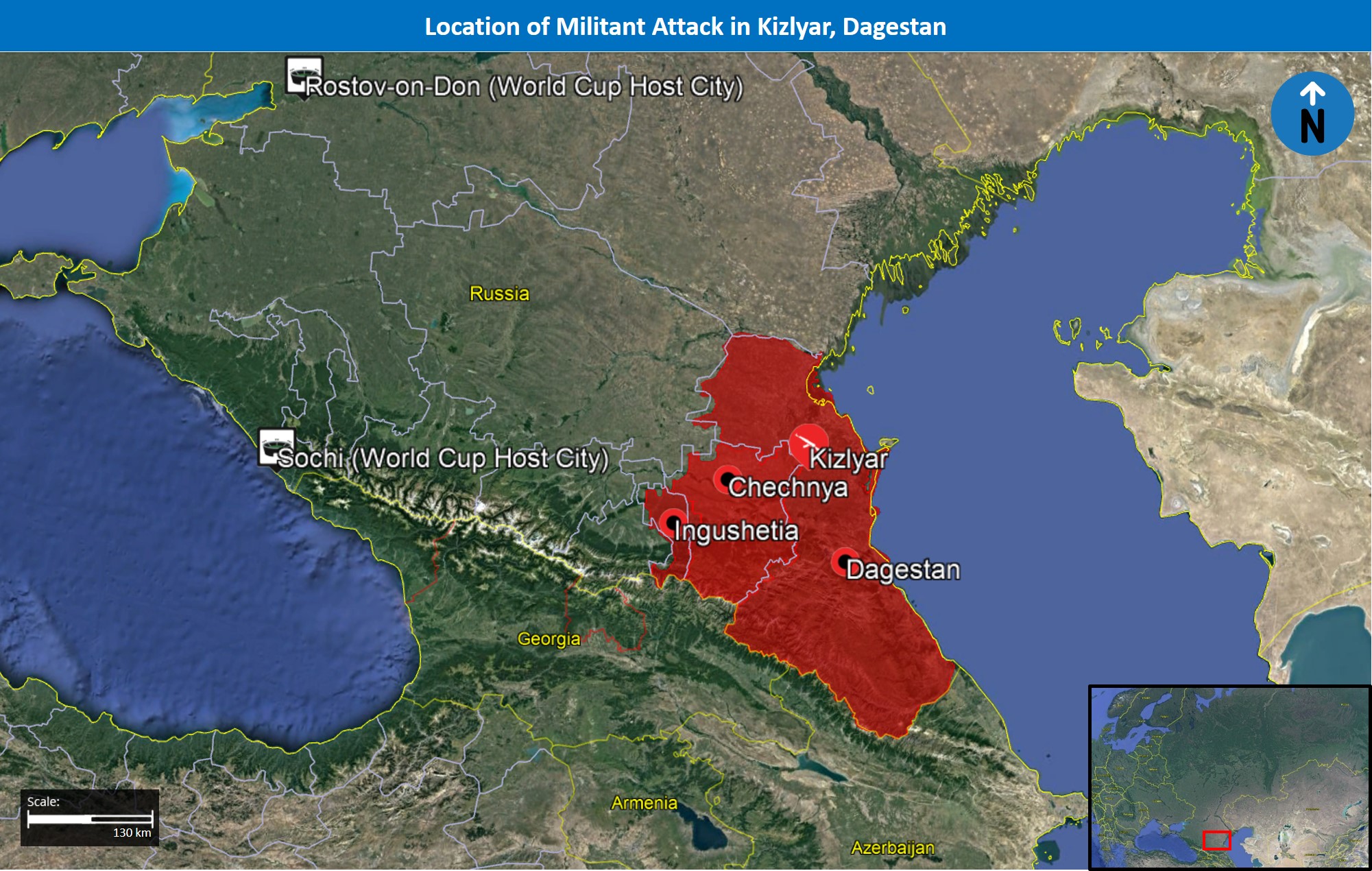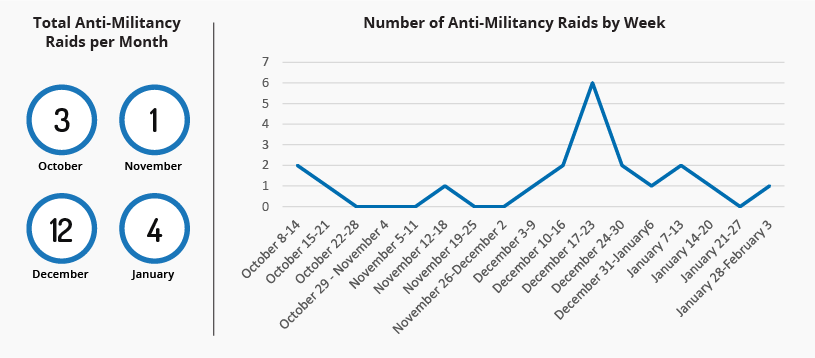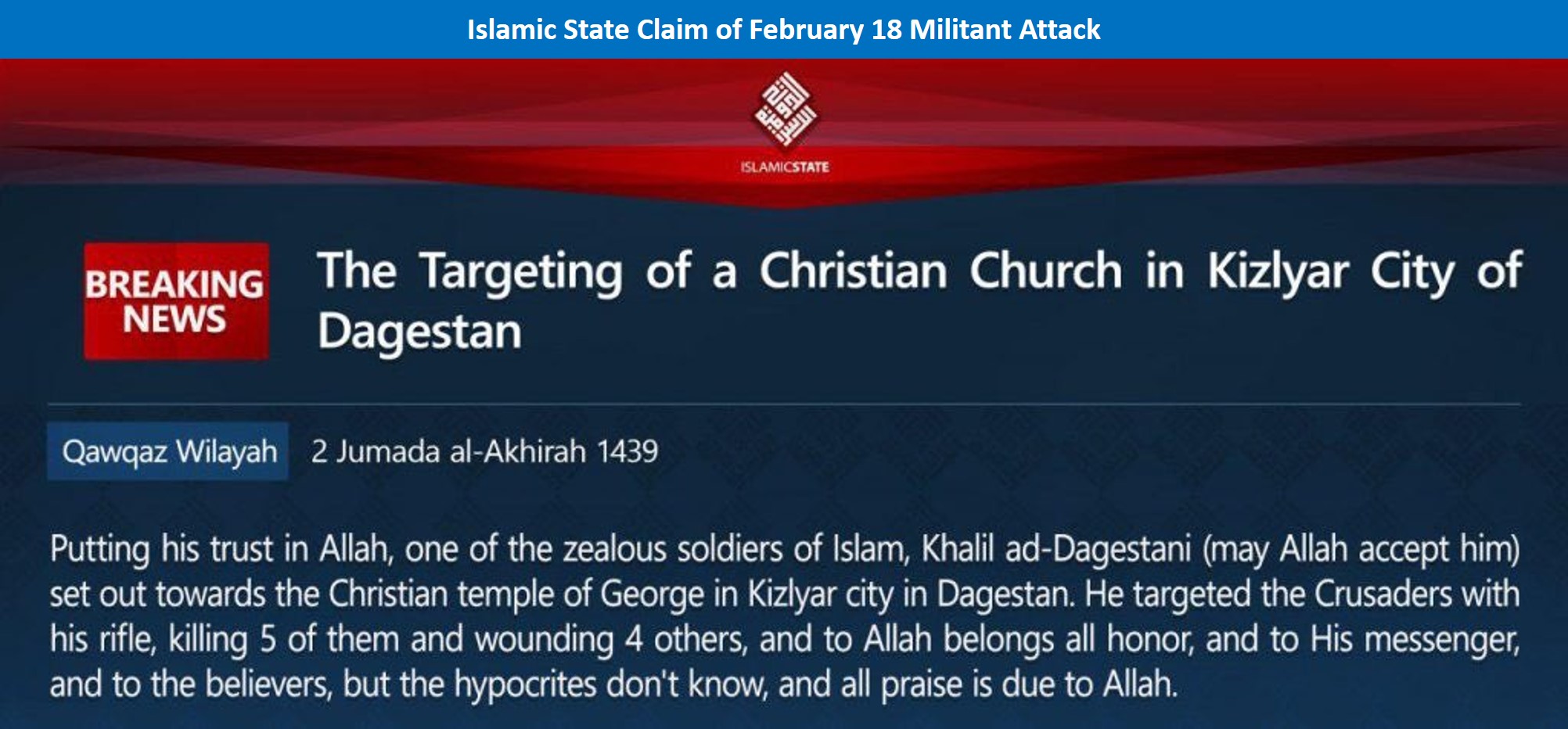Please be advised
On May 6, the Islamic State (IS)-linked media group, al-Amaq, claimed that a shooting attack which took place in Nizhny Novgorod, western Russia, was committed by a ‘soldier’ of the Sunni-jihadist group. According to a statement from Russia’s Federal Security Service (FSB) on May 4, an assailant opened fire on police officers during an identity check and barricaded himself inside an apartment in the city. The statement indicated that the perpetrator was later neutralized by security forces.
From 14 June to 15 July 2018, Russia will host the FIFA World Cup in a number of cities, including in Nizhny Novgorod. In the run-up to the tournament, Russian security forces have carried out a large number of raids and arrests, looking to neutralize militant cells made up of both Central Asian migrants, mostly based in major cities, and North Caucasian militants, mostly from the Republics of Chechnya, Dagestan, and Ingushetia.
Since the beginning of 2018, at least 38 militant counter militancy raids have been recorded in Russia, the majority focusing on reportedly IS-linked militants. At least five of the raids occurred in or near World Cup cities, including Moscow, Nizhny Novgorod, and Rostov-on-Don.
On April 17, three suspected IS-linked militants were arrested near Rostov-on-Don by FSB agents. A number of reports suggested the possibility that the militants were embedded in the city to wait until the start of the World Cup and carry out an attack during the tournament.

Assessments
The claim from IS and the reports from the FSB indicate the first case of a successful attack occurring in a World Cup host city in 2018. The most recent Islamist militant attack in one of the host cities was in St. Petersburg in mid-2017. The incident underscores previous assessments that militants, from both Caucasian and Central Asian origins, are looking to focus their operations on the World Cup, so as to maximize exposure during the tournament. In addition, the developments come following the publication IS’ official newsletter, Al-Naba, on May 4 which called on its supporters to conduct attacks across Russia, underscoring the group’s continued interest in projecting its militant capabilities in the country. This assessment gains further credence considering IS’ repeated threats to the World Cup.
While there is no indication as to the origin of the militant at the time of writing, there are three main possibilities, all of which have been previously recorded in Russia. In the event that the attacker was a lone-wolf Central Asian migrant, who was locally radicalized within Russia through online and on ground Islamist networks, the incident highlights that lone-wolves in major cities are heeding to IS’ demands to carry out attacks on World Cup cities, demonstrating the threat in any city with a significant Central Asian diaspora community. In the event that the militant had links to Caucasian militant cells, it highlights attempts by the Caucasian Emirate pro-IS group to embed radicals within major cities, prior to the tournament, who will then carry out attacks. This is likely designed to occur before security in the North Caucasus becomes overwhelming around the time of the World Cup. The third option is that the militant may have had connections with both Central Asian militant networks and Caucasian cells, which would constitute a significant threat as such an assailant would be able to utilize the covert nature of the loosely linked Central Asian networks and the expertise of the well established Caucasian groups.
Going forward, a significant increase in counter-militancy operations in major cities and the North Caucasus will occur in the run-up to the World Cup. Furthermore, the potential for both minor and major attacks in all host cities remains before and during the tournament, likely looking to specifically target stadiums and locales with international attention, so as to maximize exposure.
Recommendations
Travel to Russia may continue while maintaining vigilant given the elevated risk of militancy and crime, particularly in major cities and World Cup host cities. (Click for our special report on threats to the 2018 World Cup).
Remain cognizant of any suspicious individuals or items that look out of place. Immediately alert authorities if identified.
Avoid all nonessential travel to the North Caucasus region, given the high risk of militancy and kidnapping.



